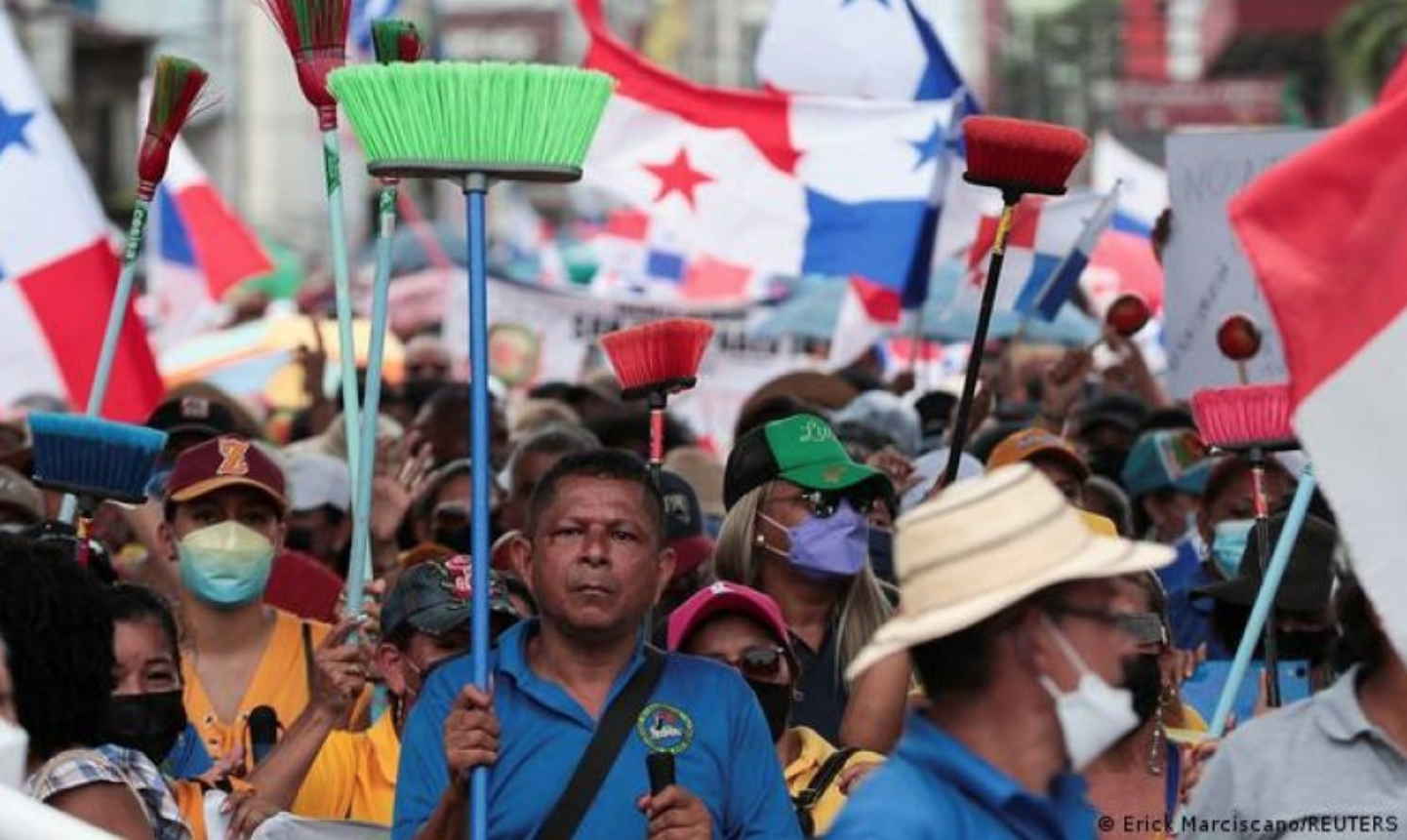The social outburst affecting Panamanian society is the product of three cumulative factors that have interacted to provoke a perfect storm: a sharp rise in the cost of living, stark evidence of social inequality, and a decline in the credibility of the incumbent government, both for signs of corruption and for its clumsy handling of the crisis.
Trade unions and social organizations have been the channel of social unrest directly caused by the high level of fuel and commodities, which were the beginning of the fundamental demands of the social demonstrations. Since the beginning of the year, prices have been rising, until, for example, a gallon of gasoline reached $5.17 in June. It may not seem such a high price in the international panorama, but it is an unaffordable jump for most of the Panamanian population.
The problem of the sharp increase in the cost of living is seriously aggravated in the midst of rampant social inequality. Panama suffers from the dissociation of two spheres of consumption. The one comes from the high salaries earned by professionals in the two main economic enclaves (management of the canal and international banking services) and the one made up of the workers who keep the costs of those services low and the rest of the rural and indigenous population. Panama City has the most expensive restaurants in the region, next to the most humble street food carts. And this inequality extends to most other areas of consumption in the country, with the aggravating circumstance that it is the highest level of consumption that the media prefer to expose.
And in this context, corruption scandals appear in a government that did not take any measures to alleviate the sharp jump in inflation, until the protest erupted explosively in the streets. Faced with the social avalanche, President Laurentino Cortizo decided to promote emergency measures, starting by lowering the price of gasoline from the current 5.17 to 3.95 dollars a gallon. But the protest had already acquired a dimension and dynamics challenging to contain.
In fact, the agreement reached between the government and the most relevant social coordinators, the National Alliance for the Rights of the Organized People (ANADEPO) and the United People’s Alliance for Life have not been able to stop the protests. ANADEPO representatives were forced to undo the agreement alleging that “the people in the streets do not accept what was agreed”. Negotiations with the National Coordination of Indigenous Peoples of Panama (COONAPIP) have had better luck, as they have agreed to lift the blockade of the highways, while a High-Level Inter-Institutional Commission for the priority attention of the various demands of the country’s native peoples, set up for this purpose, is in session.
On the other hand, in Panama City and other provincial capitals, several organizations have maintained their mobilizations, including the powerful construction union (SUNTRACS), which has blocked the main arteries of the country’s capital.
The Cortizo government and other social and economic sectors have undertaken new negotiation initiatives, now using the Catholic Church as a mediator and with the support of the Ombudsman. But the social coordinators are aware that the most radical segments of the protest do not want an early negotiation and that the beginning of the assaults on stores could lead to an open confrontation with the security forces, which have already been used to clear some main streets.
Under these conditions, everything indicates that this social explosion, which was born in a rather spontaneous way, will hardly be able to have channels in the political system and that it is highly probable that its end will produce painful ruptures in the Panamanian social fabric.
Translated from Spanish by Janaína Ruviaro da Silva











